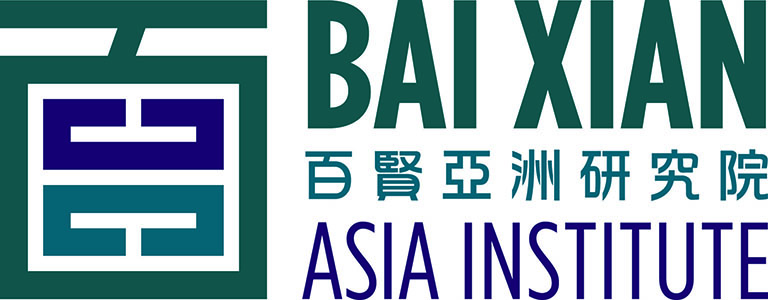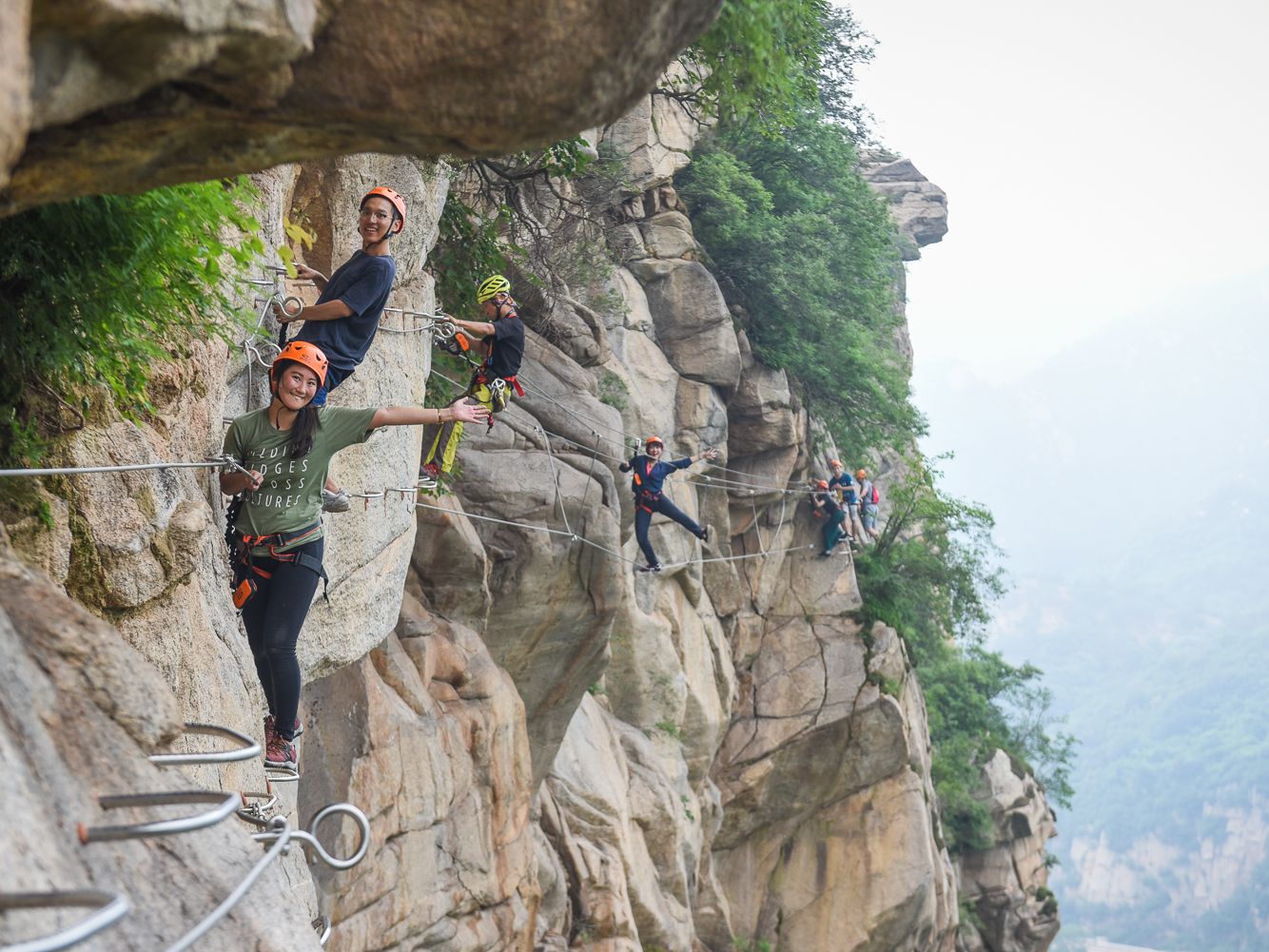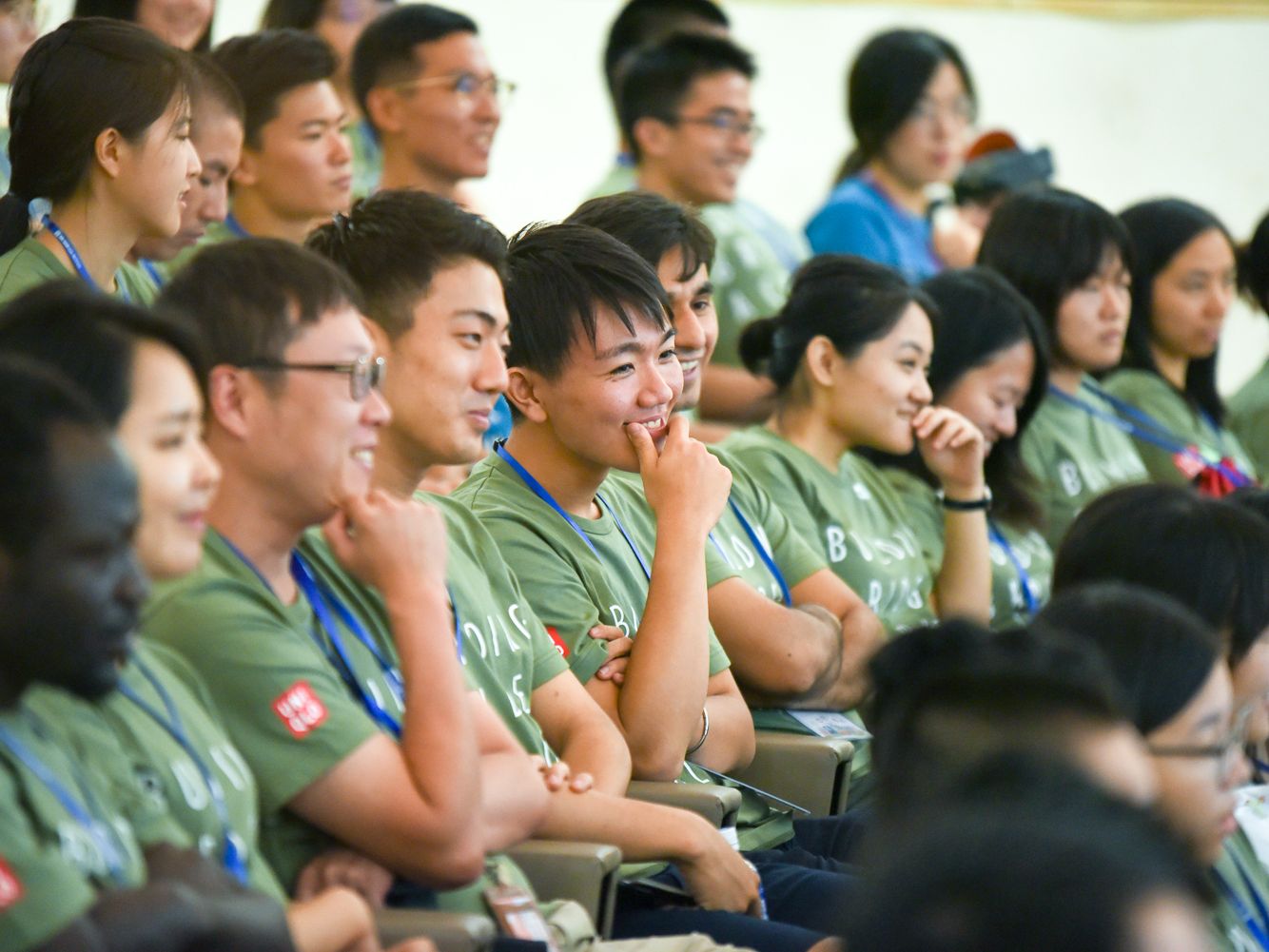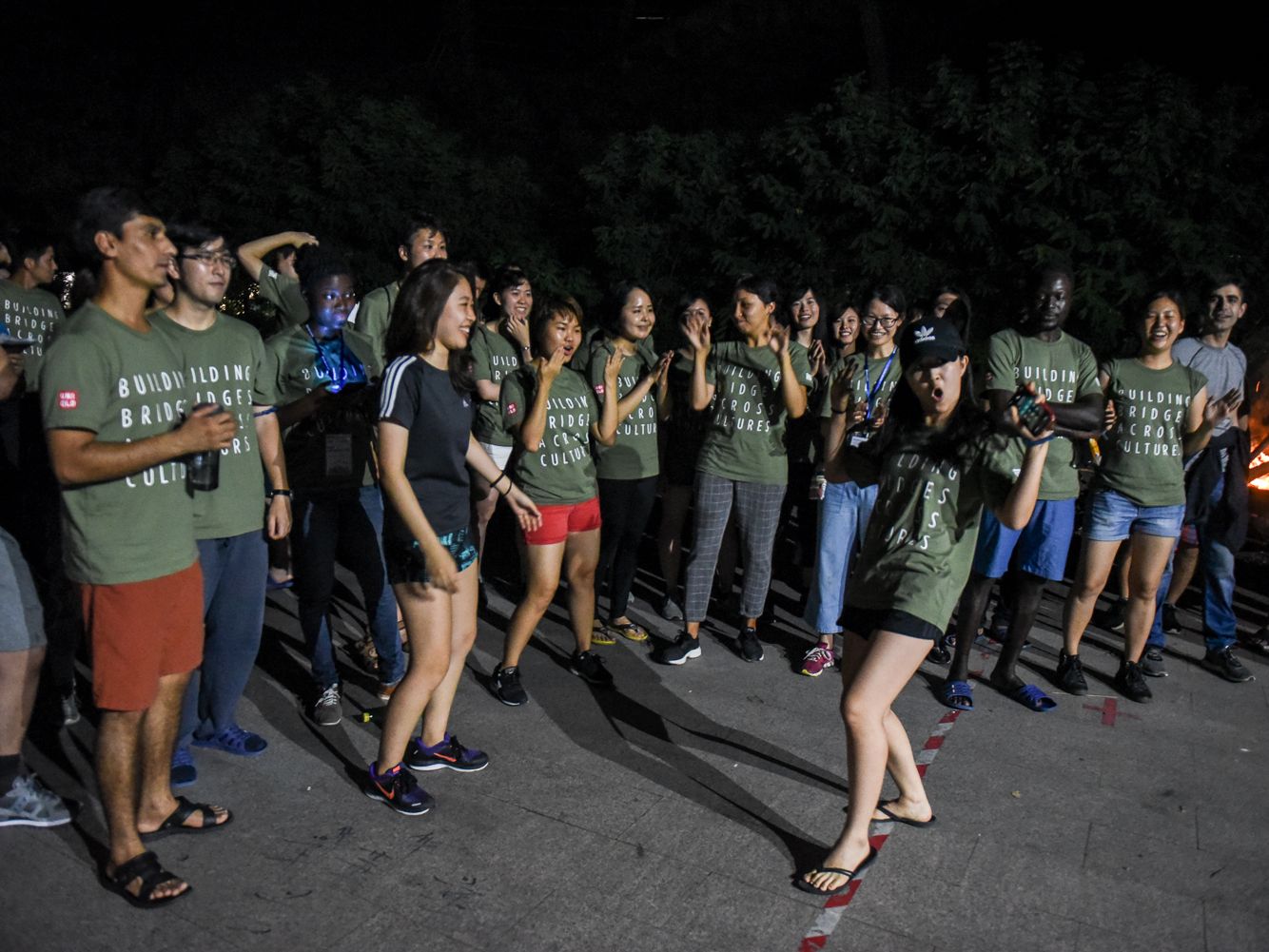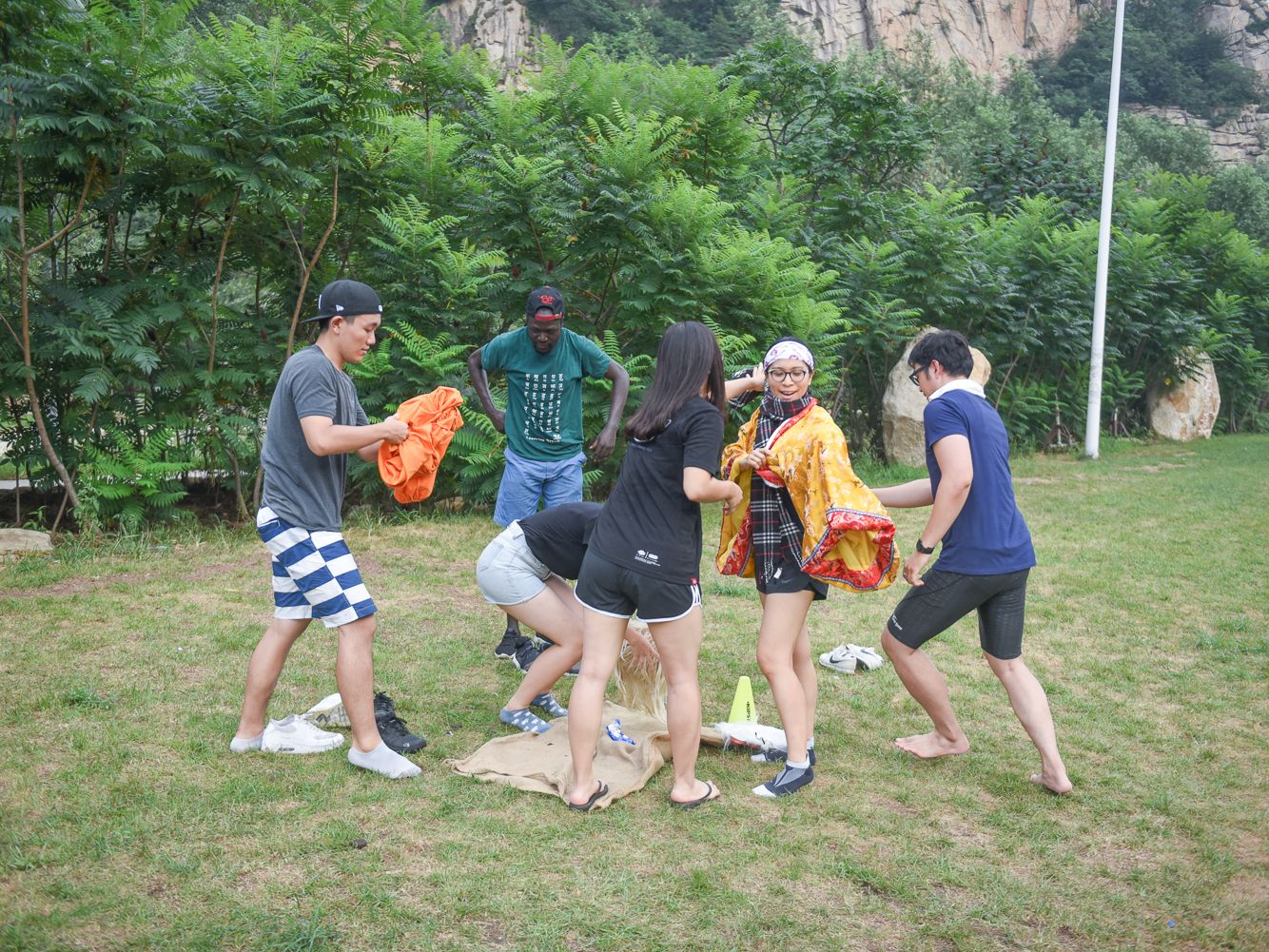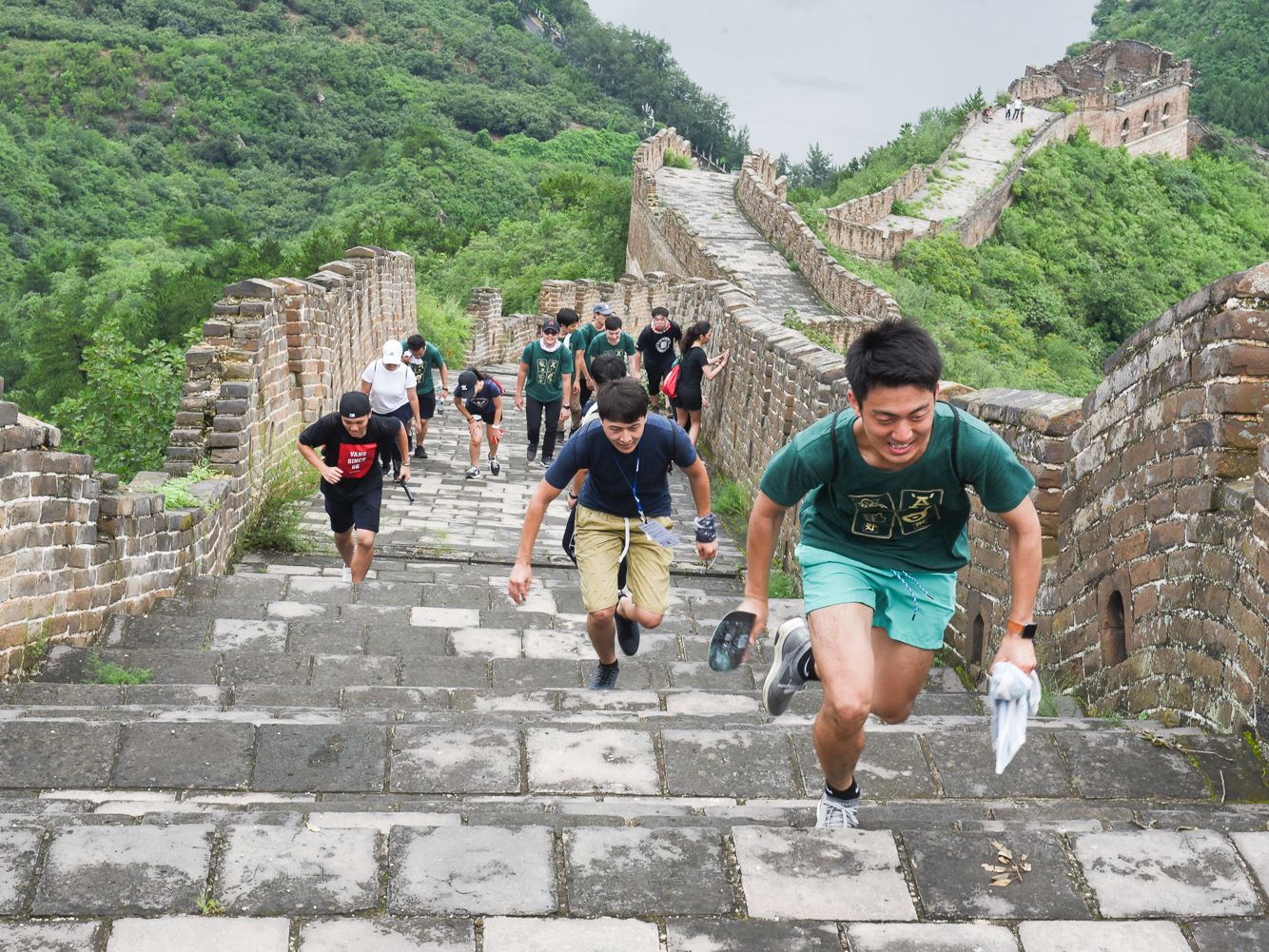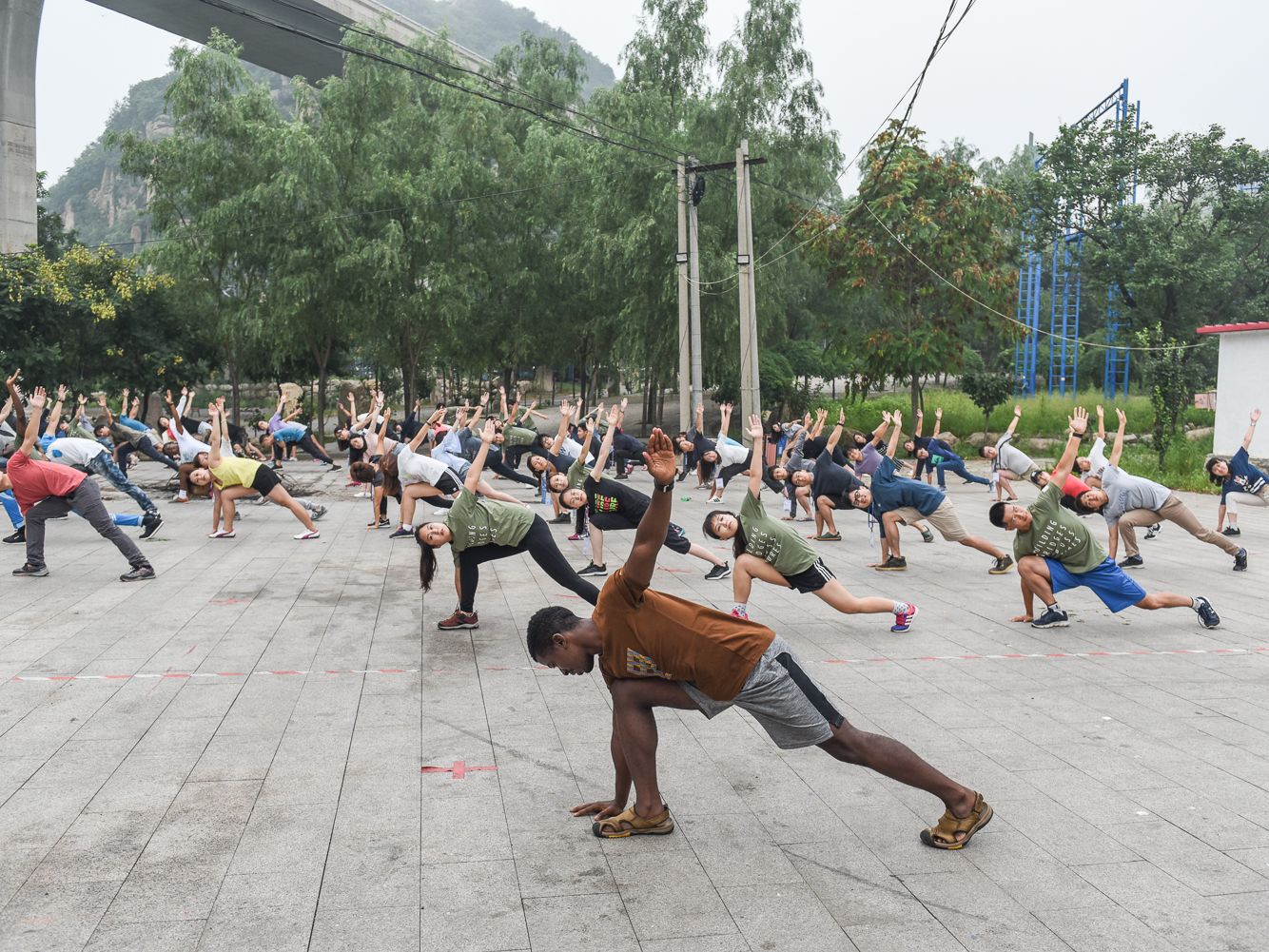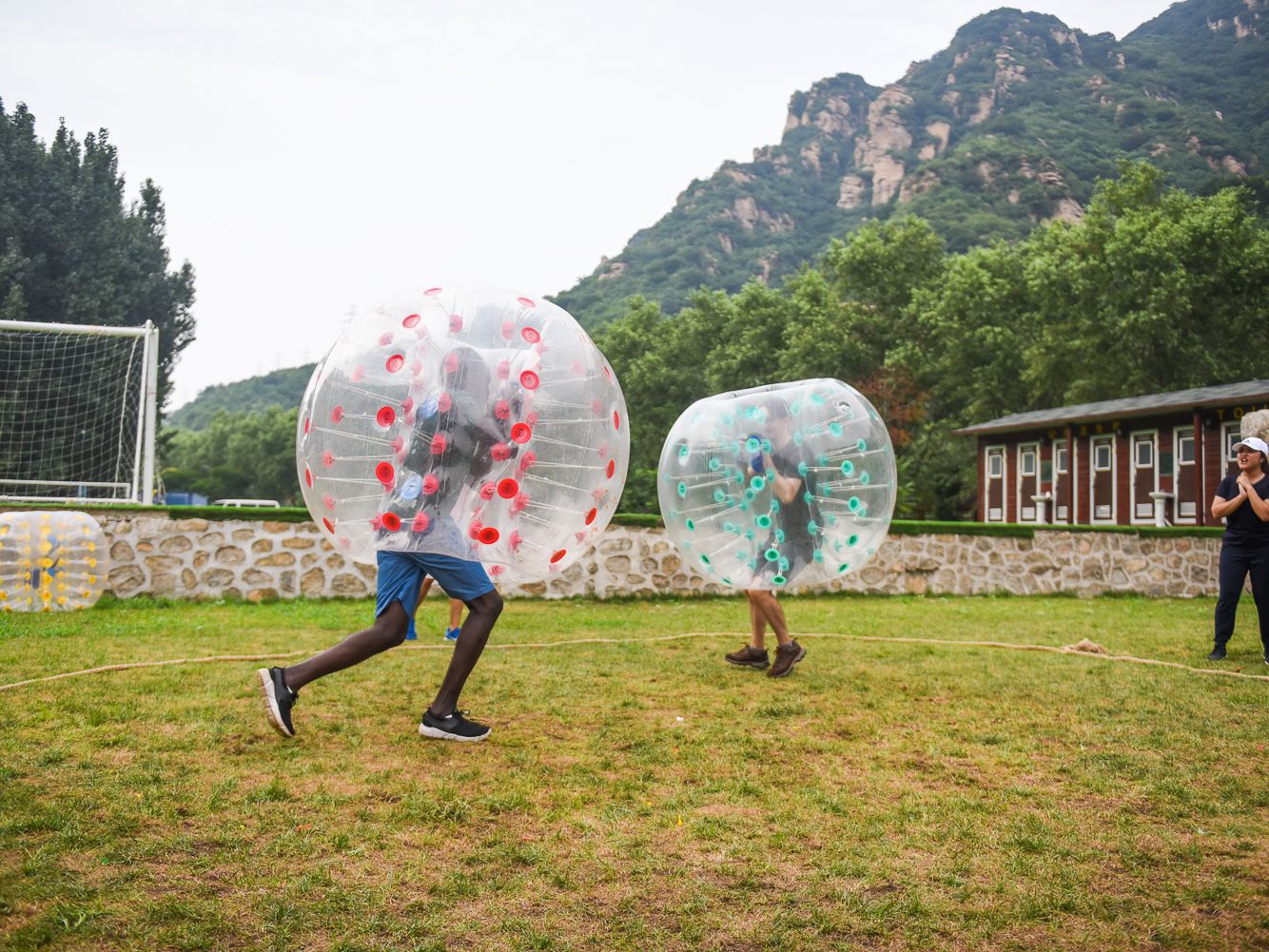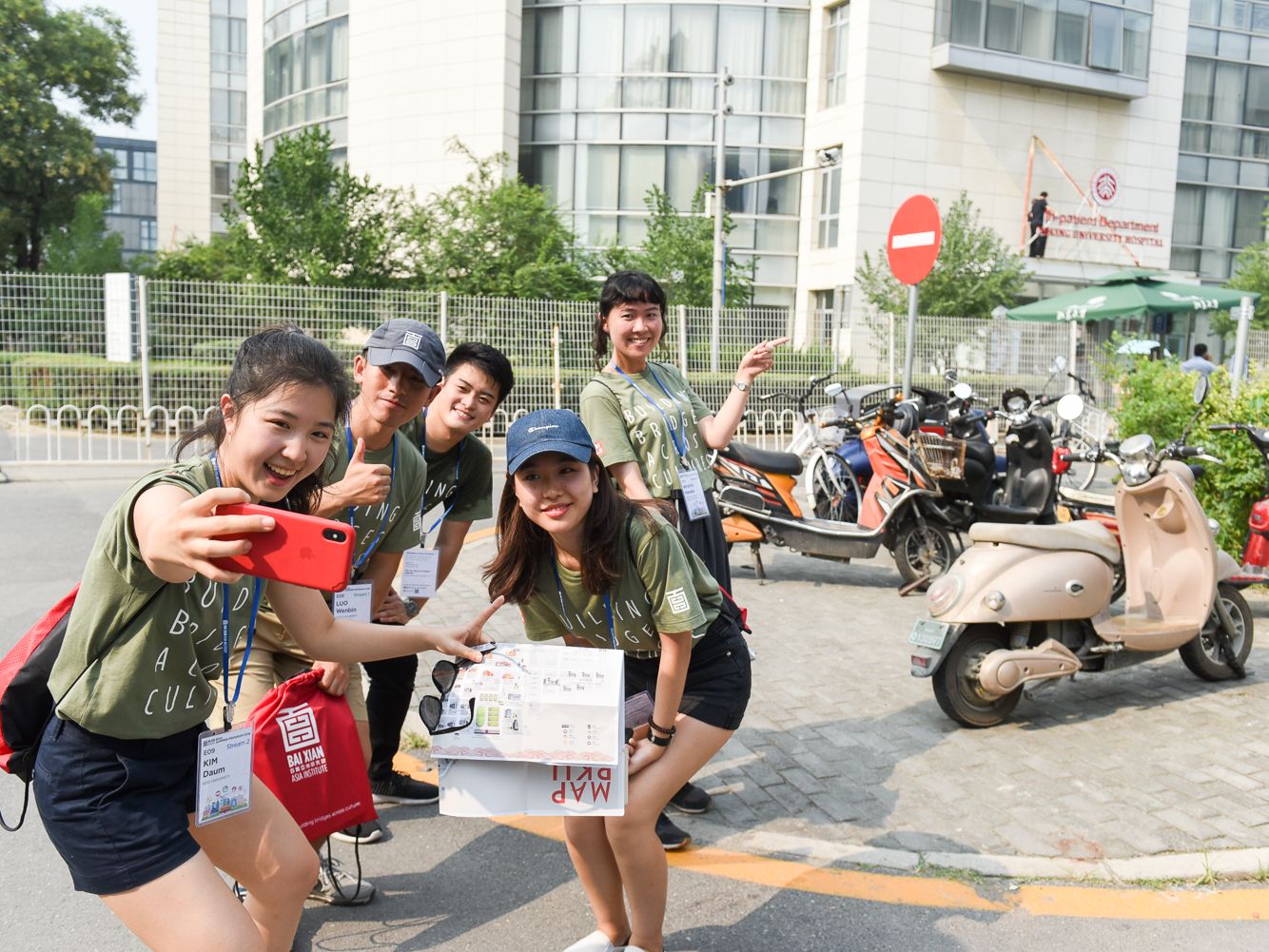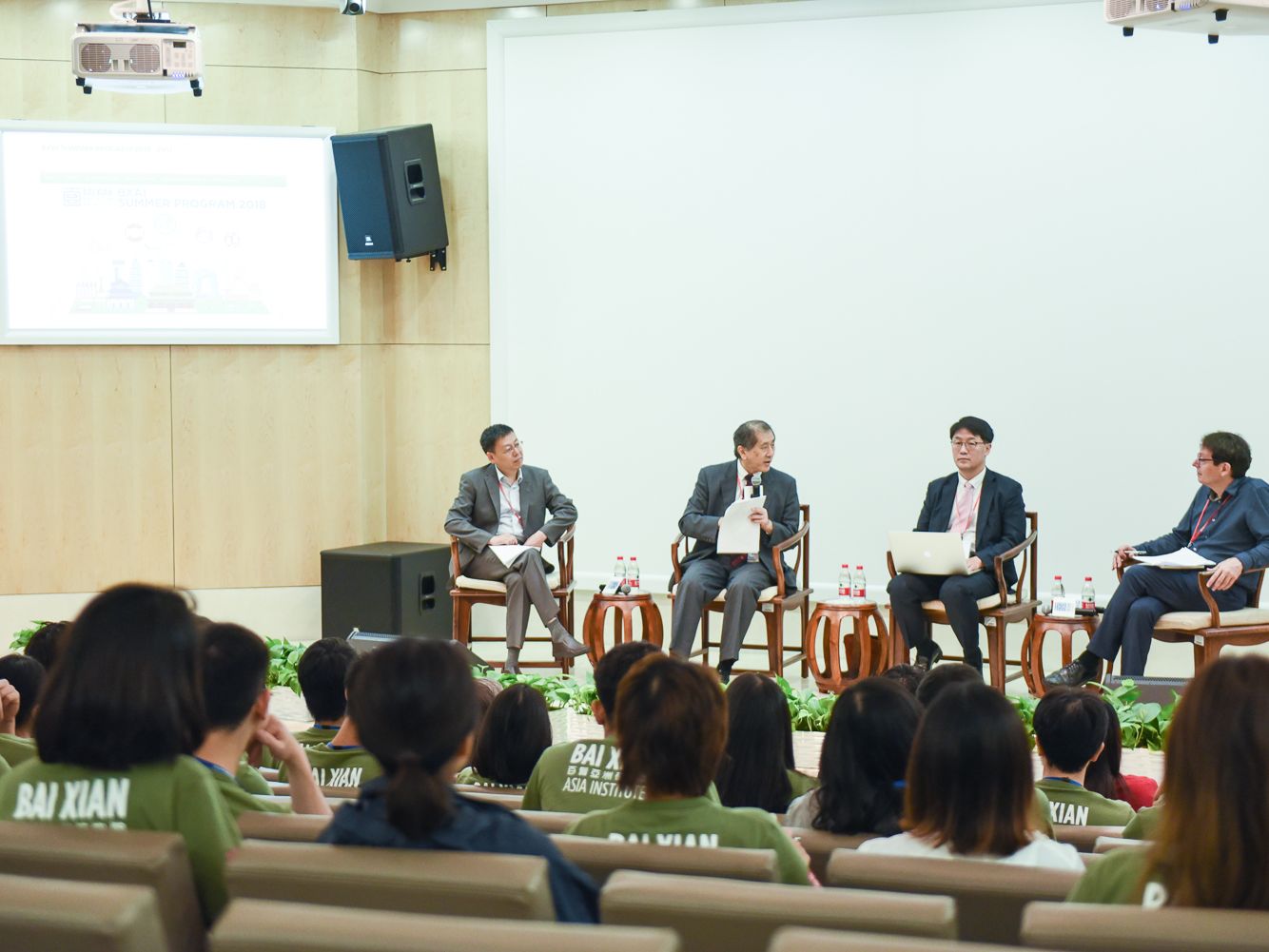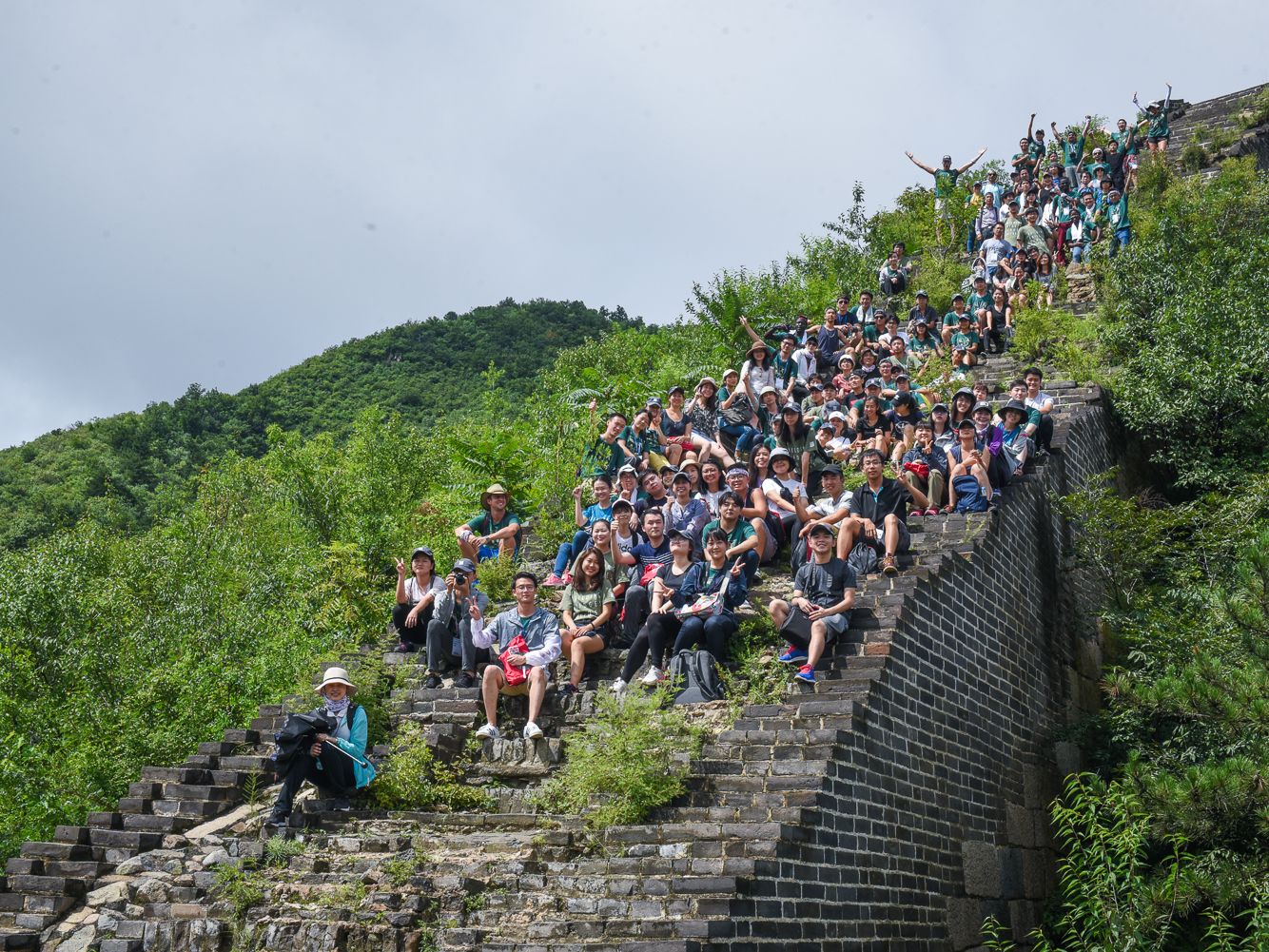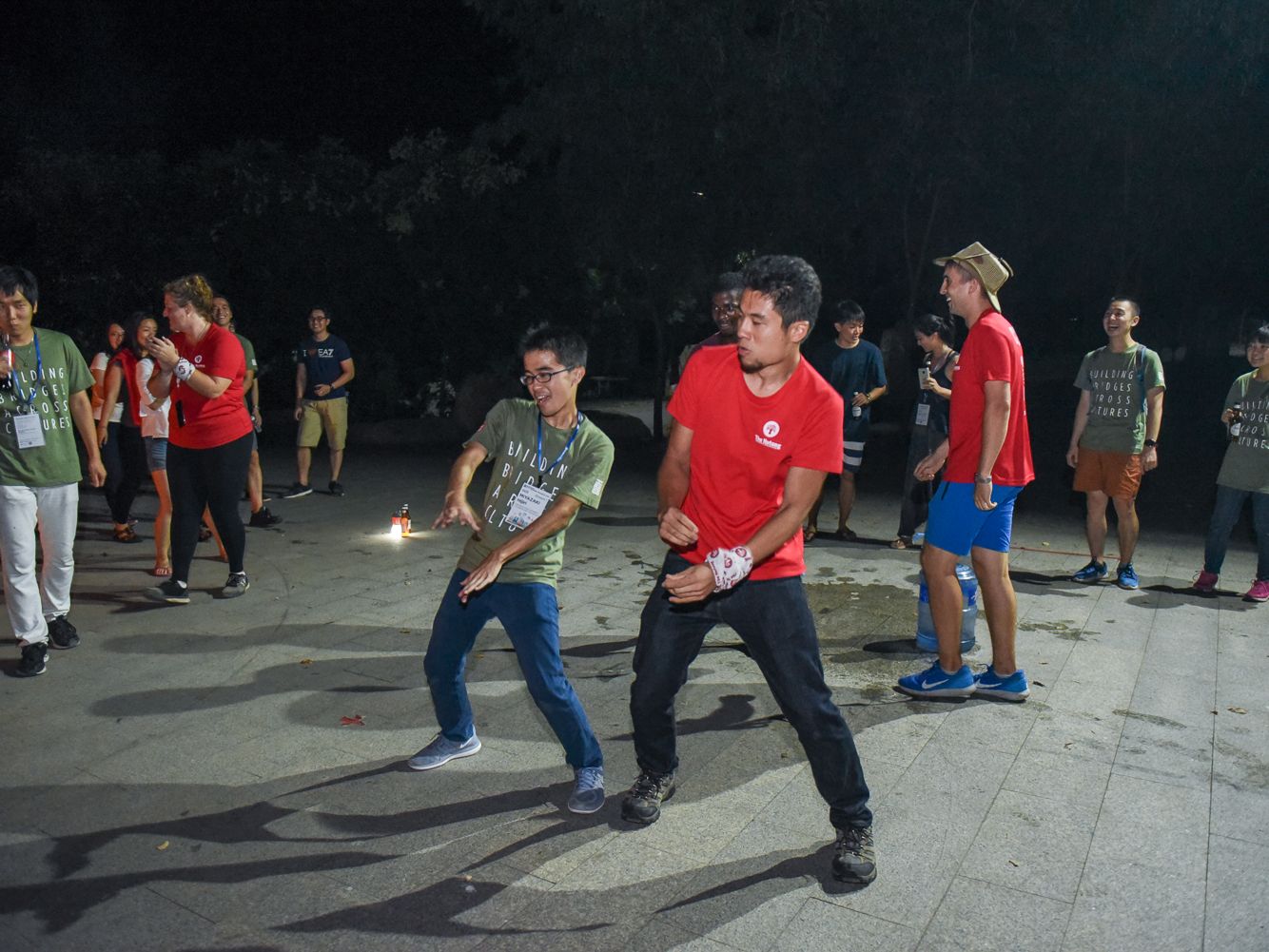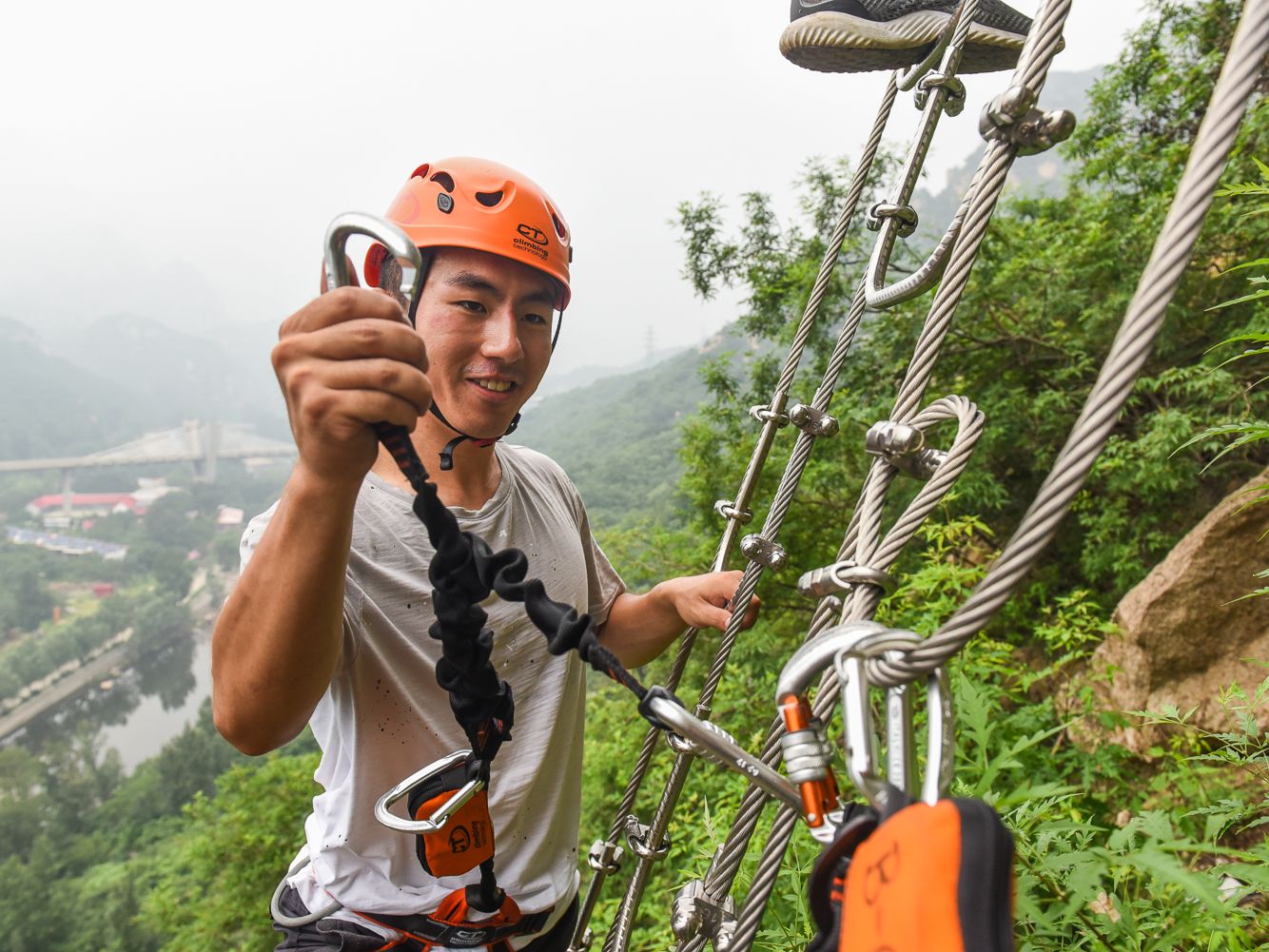Part 1
On August 3, around 90 students from BXAI’s 16 partner universities across East Asia gathered at the Yenching Academy (YCA) of Peking University (PKU) for the fourth annual Bai Xian Asia Institute (BXAI) Summer Program.
At the Opening Ceremony on August 4, Professor Lu Yang, Director of Graduate Studies at YCA, remarked upon the significance of this year’s partnership—both BXAI and YCA are like-minded institutions “taking ingenious approaches to enhance cultural understanding.” Professor Katsuichi Uchida, President of BXAI, further elaborated on the mission of the Summer Program and introduced this year’s theme, “Tradition and Innovation,” which will challenge us to consider the sustainable development of future cities.
Catherine Sze, a YCA student and AFLSP scholar, also took to the stage to share her impressions of Beijing with us.
“You can get around the city by only using the apps on your phone,” she remarked. “At the same time, you can also visualize the city’s historical past by visiting cultural attractions and heritage sites,” she continued, noting Beijing’s identity as a global city that conjoins both tradition and innovation.
After the Opening Ceremony, we enjoyed a meal with PKU student advisors before diving into a collaborative, team-building scavenger hunt around campus. Organized by the Hutong, a Beijing-based cultural exchange group, the Go! Game took us past PKU landmarks such as the Bo Ya Pagoda, the Stone Fish, and Shao Yuan dormitory, our home for the next three weeks. At the PKU Library, the largest university library in Asia, teams snapped group selfies of members looking studious. At the Khoo Teck Puat Gymnasium, originally built for the 2008 Summer Olympics’ table tennis tournaments, we completed challenges ranging from creating a group cheer to taking a creative photo of team members doing a high jump.
Although we spent our afternoon traversing the PKU campus in the 30-degree-plus heat, we braved our challenges with admirable sportsmanship and were treated to a well-deserved community dinner that evening, where everyone enjoyed local delicacies and took part in fun icebreaker activities such as the BINGO trivia game.
To kick-start the dinner, Professor David Moser, Associate Dean at YCA, recalled a time when PKU was still located in a rural area, not the “Silicon Valley of Beijing” it is today. He encouraged everyone to embrace leadership and collaboration in our so-called “Asian century.” Professor Angelina Yuen, a member of BXAI’s Executive and Academic Committees, also highlighted the importance of global leadership in her speech, underscoring BXAI’s goal to build bridges across cultures. She shared her ABCDE acronym for leadership, encouraging us to aim high, initiate change from the bottom up, form comradeships, and work with dedication, devotion, and empathy.
More words of wisdom followed at Monday morning’s panel discussion, “Envisioning East Asia’s Future in View of the Past,” which was moderated by Professor Daniel Bell from Shandong University and featured Professor Fan Shiming, Associate Dean at PKU; Professor Min Gyo Koo from Seoul National University; and Professor Aiji Tanaka from Waseda University. Topics discussed included how traditional East Asian views on morality, culture, and politics may influence future international relations, the differences between ruling by law versus by morality, and how nuances in translation shape intercultural communication. Panelists then moved on to examine modern-day East Asian conflicts and discussed ways to secure regional harmony particularly in relation to North Korea.
It was clear that students were highly engaged, as demonstrated by the lively Q&A session that followed, which centered on East Asia’s maritime disputes and how countries may compromise to cooperate for the sake of developing future relations.
Though the panel discussion began on a lighthearted note, with Professor Koo joking that we resembled construction workers with our “Building Bridges Across Cultures” T-shirts, the session ended with a more serious plea from panel members, who entreated us to become a kinder, more collaborative community of future leaders.
“Hopefully you will make our future brighter and better,” said Professor Koo.
Part 2
With fingers crossed for better weather, we embarked that afternoon on our three-day adventure with the Hutong to Shimenshan, a scenic mountain area northeast of Beijing. There, we traded Shaoyuan dorms for “container hotels” and took part in a range of physical and mental challenges that made teamwork more important than ever. While playing lawn games, teams built a ‘tower’ using spaghetti sticks and marshmallows, cheered each other on in a potato sack relay, and came head-to-head during “zorb sumo”.
“My teammates were so supportive and encouraging—they cheered me on even when I was not performing well,” remembers AFLSP Scholar Lin Yinghui from Waseda University. “Encouragement really works its magic for team building!”
We also took part in improv workshops that channeled the Summer Program’s theme by using traditional storytelling structures to create new stories. The foremost rule of improv—saying yes to different ideas—taught us the value of building on each other’s thoughts in order to innovate.
Yet all students agreed that the most daring challenge was ultimately the Via Ferrata (Italian for “iron path”) rope course. Wearing safety harnesses and strapped to lanyards, we scaled a mountainside by stepping and holding onto iron rungs attached to the wall, and crossed bridges that consisted only of cables suspended in mid-air. Everyone truly took themselves to new heights, literally and figuratively, embracing an exercise in balance, bravery, and pushing one’s boundaries.
On the last day of the excursion, rainy skies miraculously cleared, giving us the green light to hike part of the Huanghuacheng, a wild section of the Great Wall of China. As we scaled steep ascents without stairs (with some of us wearing only slippers, or even going barefoot!), we made sure to capture this memorable experience by snapping selfies along the way. For many, it was their first time on the Wall, and their excitement was contagious. Some of us even engaged in a bit of friendly competition – racing up the Wall while cheering each other on and checking up on one another to make sure our peers were safe. We truly embodied the Hutong’s motto, which many of us sported on our shirts: to “be a good egg” (做個好蛋).
From breaking out into dances together around a bonfire to helping each other up and down the Great Wall, students demonstrated genuine comradeship that heralds strong collaborations to come. On the last day of the excursion, Professor Bell’s concluding words from Monday morning’s panel felt particularly salient: “Let’s not forget that the Great Wall was originally built to keep people out,” he had said. “Now, it’s visited by tourists everywhere.” A World Heritage site that has been preserved so that people of all backgrounds can experience a historical landmark first-hand, the Great Wall is indeed a fitting symbol of the 2018 BXAI Summer Program: it is at once an example of tradition and innovation, and a place for diverse minds to meet and reach new heights.
